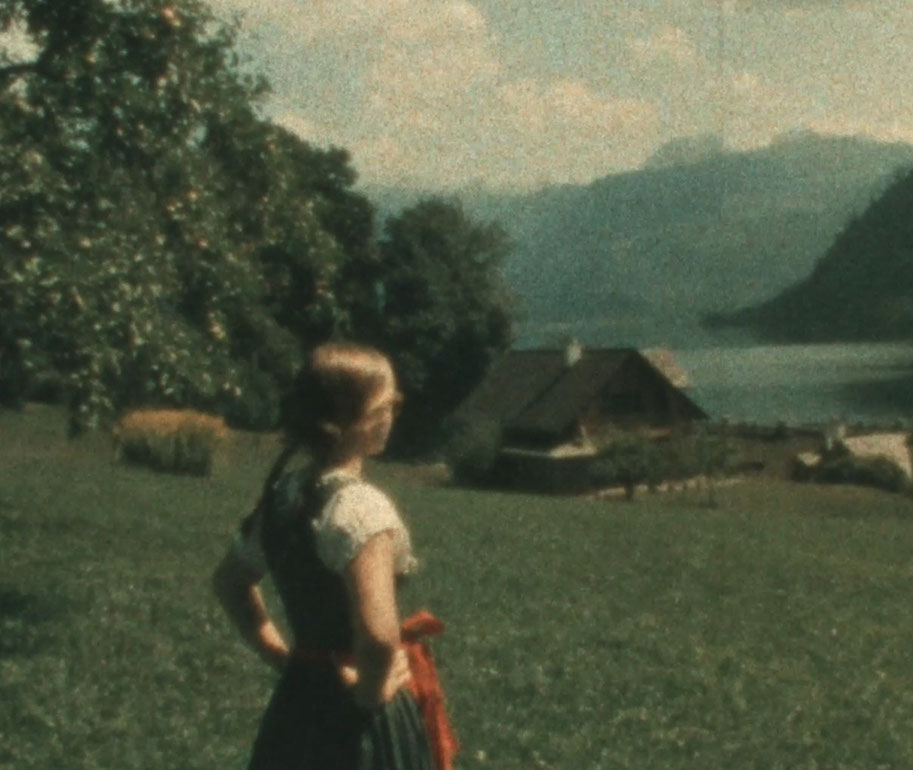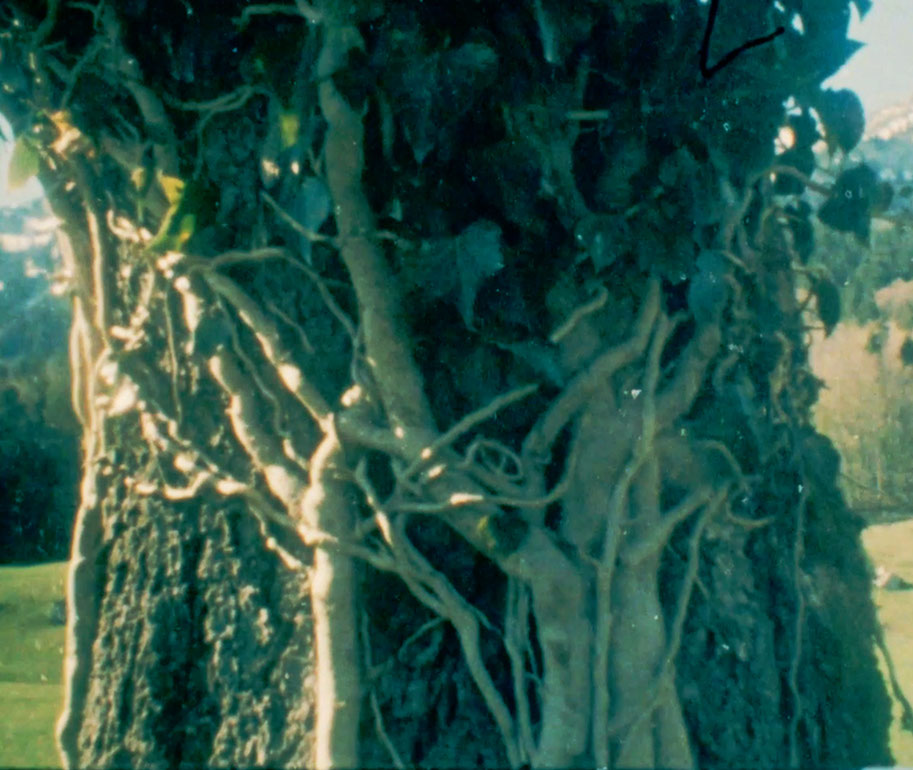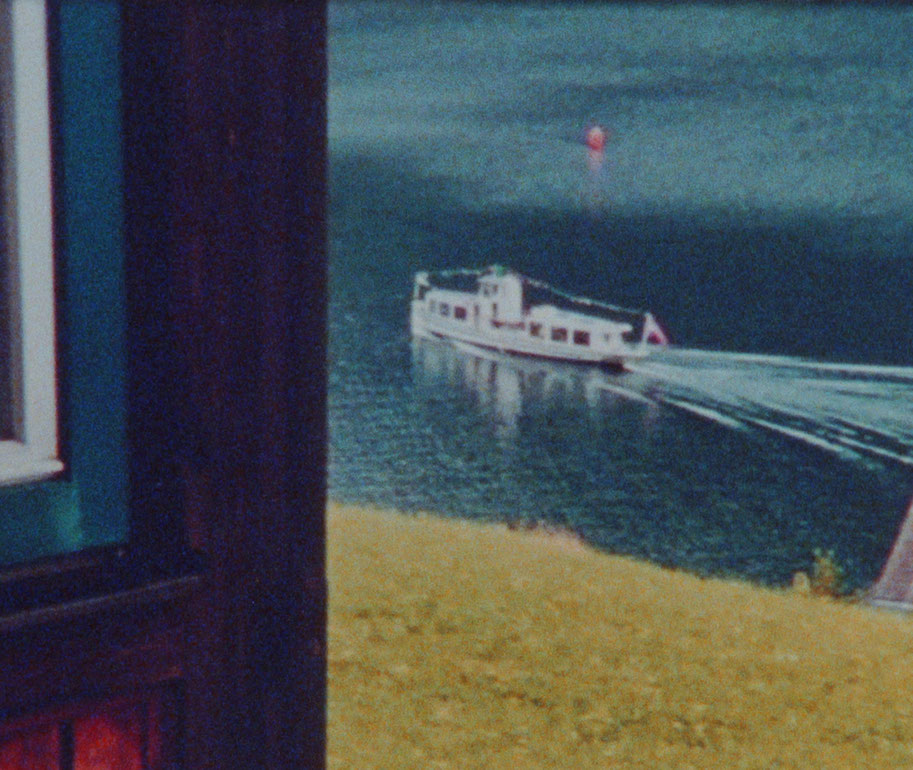Dirndlschuld
For some the Dirndl is just a pretty, colorful dress with an apron, for others it is a lifelong confrontation. Just like garments also locations are contaminated and are subjected to different interpretations by family history. Each generation has its own way to read those narratives, that have put layer upon layer until no one can be sure what is underneath. The Super-8 film dives deep down into the magic of the Grundlsee and opens up the view upon lower layers. (production note)
The Grundlsee in the Styrian region of the Aussee is considered a particularly idyllic holiday destination. Here, Austria is shown in all of its natural beauty. Those who want to relax on the Grundlsee also often like to wear traditional costumes: a dirndl for the women, deerskin for the men. This way you can show yourself as a being local patriot, even if you come from Germany or elsewhere. The “alpine clothing” that the Nazis spoke of after the Anschluss was also often controversial. A famous photograph of Sigmund Freud and his daughter in South Tyrol, he in a hunting suit and she in a dirndl, would no longer have been possible in 1938 – because the Nazis banned Jews from wearing traditional Austrian costumes.
Wilbirg Brainin-Donnenberg shows the image of the Freuds very briefly in her film Dirndlschuld, in which she deals in a very personal way with notions of authentic Austrian appearance and with “ideological difficulties” that might arise when wearing a dirndl. Her daughter, who also acts as a model in the film, wears the item of clothing unselfconsciously; she has no such difficulties. And her husband Joe doesn’t want to spoil the summer experience with “clothing-determined attitudes”, because he “is crazy about the Grundlsee”. The landscape appears in Super-8 shots from vacation photographs. The pictures show a summer idyll of the second order, with gorgeous but also unreal colors and moods, and scenery reminiscent of landscape painting. In Dirndlschuld, with her calm voiceover and these images, Wilbirg Brainin-Donnenberg lays bare the traces of her own family history, which prove to be representative of the Austrian way of dealing with the past. The term “dirndl guilt”, embroidered in the title insert as if out of naiveté, points to the fact that behind the seemingly innocently beautiful Austrian cultural landscape, an abysmal history is concealed. (Bert Rebhandl)
Translation: John Wojtowicz
Dirndlschuld
2021
Austria
15 min
Documentary, Experimental
German
English



